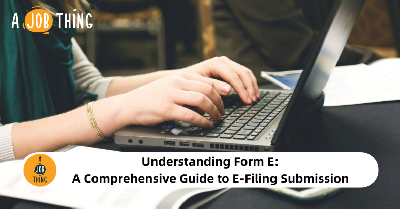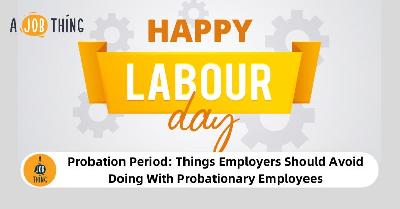
HR's Guide to Develop Company Policies and Procedures
Create Job Description Using AI
Write appealing job descriptions for any job opening to attract the most qualifield and suitable candidates. FOR FREE.
try now
Company policy is critical when addressing relevant issues. From hiring to employee benefit, there will be policy and procedure for HR department to handle employee-related issues.
Policy is also important when it comes to protecting the company from undesirable behaviours and ensures a safe, organised and non-discriminatory workplace. Therefore, an organisation needs to review, evaluate, and renew its policy at least once a year.
The DIY Committee Guide has provided 9 important steps in developing policies and procedures for organisations:
1. Identify need
Policies can be developed under these situations:
-
In anticipation of need. For instance, child protection policies should be in place when an organisation deals with children in the workplace
-
In response to need. For instance, policy position might be developed in response to a consultation paper such as the business outline
Your organisation should always assess its activities, responsibilities, and external environment to identify the need of renewable policies.
2. Identify who will take lead responsibility
In a team, the leader should be responsible of the new policy. Though sometimes a certain member or team might be appointed to focus on policy responsibilities according to expertise required.
3. Collect information
To create a better company policy, it is important to gather valid information on what to revise and to improve in the organisation. Check necessary files and conduct questionnaires to collect relevant data.
4. Draft policy
After identifying the needs and who will take responsibilities, the next step is to ensure length and complexity of the new policy. The new length and complexity policy should appropriate for the one who will implement it.
5. Consult with relevant stakeholders
Policy will be more effective when parties involved are supporting and have a chance to consider and discuss potential effects of the policy. It will depend on whether the person responsible is developing policies to govern the internal matters or external policy positions. Therefore, it is recommended to consult with:
-
Supporters
-
Staff and volunteers
-
Management Committee members
-
Service users or beneficiarie
6. Finalise or approve the policy
When finalising new policies, Management Committee will be responsible in approving all policies and procedures. If the Committee agrees, the new policy can be dealt with effectively by staff.
7. Consider whether procedures are needed
Procedures are usually required to support internal policies. It is better to consider the procedure for clear guidance regarding on how the policy will be implemented. For instance, a policy for receiving complaints will need a set of procedures on how complaints will be handled.
8. Implement the policy
When implementing the policy, it is important to consider how and to whom the policy will be communicated. One should also know whether training is needed in the implementation among employees. If required, one can also produce press release for external policy position
9. Monitor, review and revise
Monitoring new policies will help to ensure that the policies are better implemented and to assess usage and feedback. It will also tell what works and what fails. Therefore, if necessary, one can review and revise the new policy.
Post to Multiple Top Job Websites in One Click! Start hiring with AJobThing.com today and post your job on LinkedIn, Jora, Maukerja, Ricebowl, and many more.





